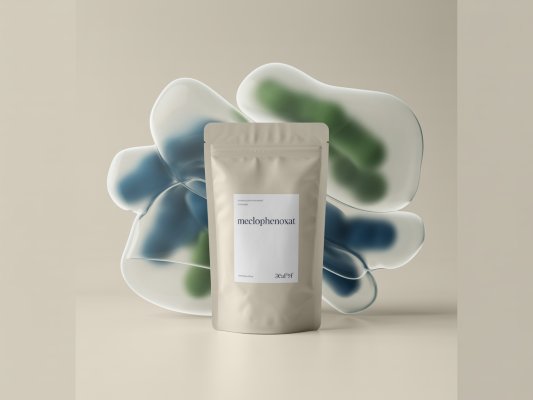
Meclophenoxat
Description
Meclophenoxat, also known as centrophenoxine, is a nootropic compound initially developed in France in 1959. It is primarily known for its potential cognitive-enhancing and anti-aging properties. This article provides a comprehensive yet accessible overview of Meclophenoxat, covering its benefits, dosage, side effects, and mechanism of action.
Quick Overview: Meclophenoxat At-a-Glance
- Key Benefit(s): Potential cognitive enhancement and anti-aging effects.
- Primary Mechanism: Increases acetylcholine levels and reduces lipofuscin buildup in the brain.
- Best For: Individuals seeking to improve memory, learning, and overall cognitive function, particularly the elderly.
- Typical Dose Range: 250-3000mg daily, divided into two doses.
- Key Caution/Consideration: May interact with other CNS drugs and is an unapproved drug in the US.
Table of Contents
Categories & Effectiveness
Learn about our rating methodologyNo categories available for this nootropic.
Dosage & Side Effects
Recommended Dosage
Potential Side Effects
Bioavailability & Half-Life
Interactions & Stacks
Recommended Products
Vitamatic Streptococcus Thermophilus Probiotic Powder - Digestive Health Support - 100 Gram (3.5 OZ) - 100 Servings
- Rated 5.0 stars by 5 customers
- Premium quality ingredients
Kroeger Herb Products, Circu Flow, Hawthorn Supplement for Heart Support, Daily Circulation Supplement, Promotes Cardiovascular Function with Hawthorn Berry, Non-GMO, 270 Capsules, Made in USA
- Rated 4.7 stars by 340 customers
- Premium quality ingredients
Organic Hemp Protein, Vegan Protein Powder, Clean Plant Based Protein Powder, Non Dairy Protein, Lactose Free Natural Protein, Gluten Free- 20 Servings, Chocolate
- Rated 4.7 stars by 201 customers
- Premium quality ingredients
As an Amazon Associate we earn from qualifying purchases. Prices and availability are accurate as of the date/time indicated and are subject to change.
Benefits by Use Case
Enhanced Memory
May improve memory formation, storage, and retrieval, particularly in the elderly. Enhances memory and improves cognitive functions of the elderly.
Improved Learning
May increase learning speed and enhance synaptic plasticity. Increases learning speed in mice.
anti-aging
May increase lifespan and reduce lipofuscin accumulation in nerve cells. Increases lifespan in rats (up to 50%).
Mechanism of Action
Frequently Asked Questions
Where to Buy Meclophenoxat
Based on quality, price, and customer reviews, here are our top recommended Meclophenoxat supplements:
Terragen HG Formula MAX by terrasil, Fast Soothing Natural Treatment Cream for Genital Sores & Effective Outbreak Support, for Men and Women (14g)
- Rated 4.2 stars by 2,777 customers
- Premium quality ingredients
Kroeger Herb Products, Circu Flow, Hawthorn Supplement for Heart Support, Daily Circulation Supplement, Promotes Cardiovascular Function with Hawthorn Berry, Non-GMO, 270 Capsules, Made in USA
- Rated 4.7 stars by 340 customers
- Premium quality ingredients
Organic Hemp Protein, Vegan Protein Powder, Clean Plant Based Protein Powder, Non Dairy Protein, Lactose Free Natural Protein, Gluten Free- 20 Servings, Chocolate
- Rated 4.7 stars by 201 customers
- Premium quality ingredients
As an Amazon Associate we earn from qualifying purchases. Prices and availability are accurate as of the date/time indicated and are subject to change.
Summary & Expert Opinion
Meclophenoxat's primary mechanism involves increasing acetylcholine levels in the synaptic vesicles, facilitating enhanced cholinergic neurotransmission. This is achieved through its composition of PCPA (p-chlorophenoxyacetic acid) and synthetic DMAE (dimethylaminoethanol). DMAE is a precursor to choline, which is then converted into acetylcholine, a neurotransmitter crucial for memory, learning, and overall cognitive function. By increasing acetylcholine levels, Meclophenoxat may improve synaptic plasticity, enhancing the brain's ability to form new connections and adapt to new information.
Furthermore, Meclophenoxat has been shown to improve brain oxygen and glucose uptake, which is essential for neuronal health and function. Neurons require a constant supply of oxygen and glucose to produce energy and maintain their cellular processes. By enhancing these metabolic processes, Meclophenoxat may protect neurons from damage and improve their overall function.
One of the unique aspects of Meclophenoxat is its potential anti-aging properties, particularly its ability to reduce lipofuscin accumulation. Lipofuscin is a waste product that builds up in cells with age, interfering with cellular function and contributing to age-related decline. Meclophenoxat has been shown to reduce lipofuscin accumulation in nerve cells, potentially ameliorating some of the effects of aging on the brain.
However, it is important to acknowledge the limitations of the available research on Meclophenoxat. Many studies are preclinical or conducted on animal models, and more human clinical trials are needed to confirm its efficacy and safety. Additionally, the regulatory status of Meclophenoxat varies across countries, and it is considered an unapproved drug in the US. This highlights the need for caution when purchasing Meclophenoxat and the importance of consulting with a healthcare professional before using it.








